The Power of Narrative:
Family Storytelling, Diverse Families, and Donor Conception
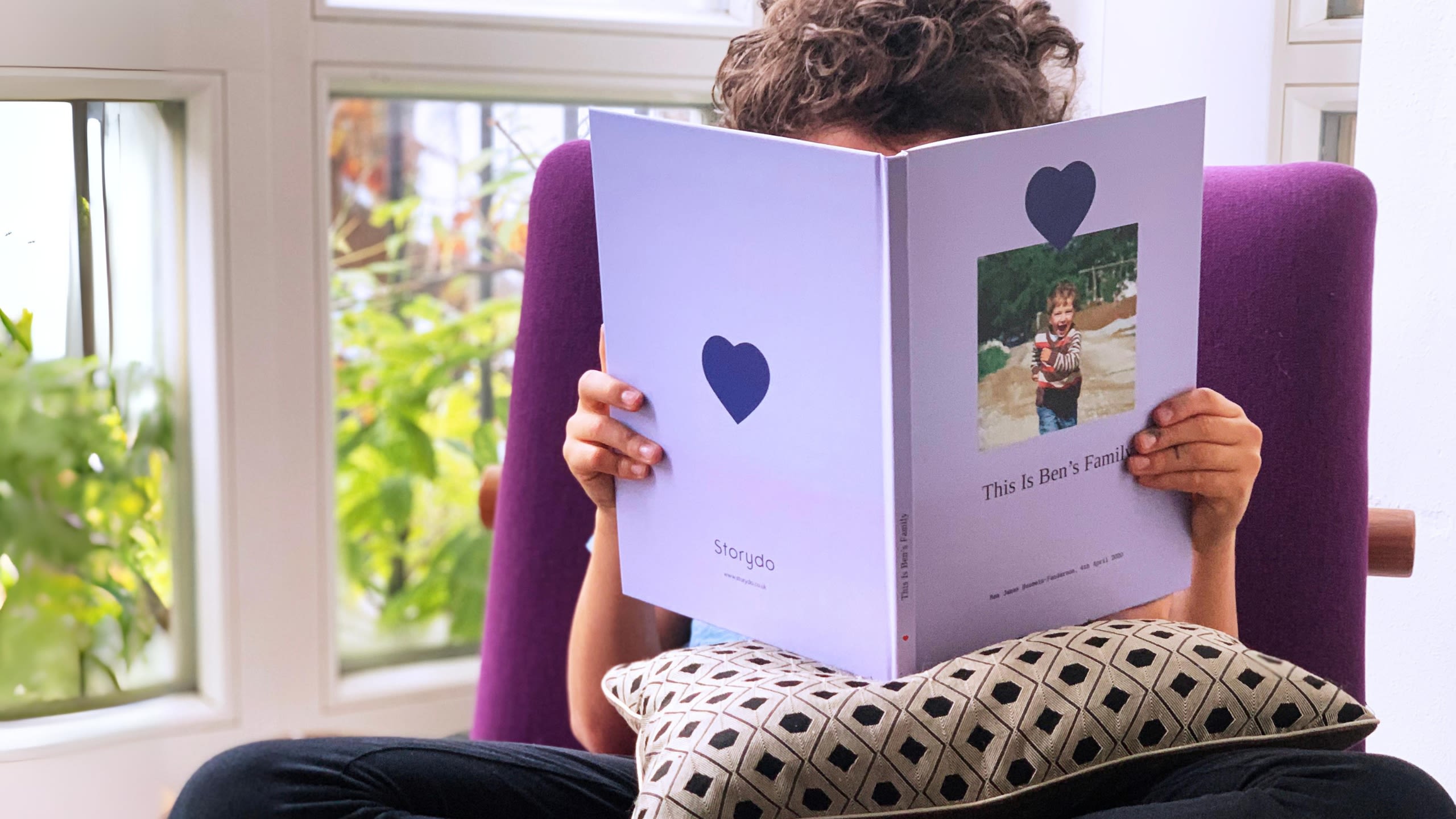
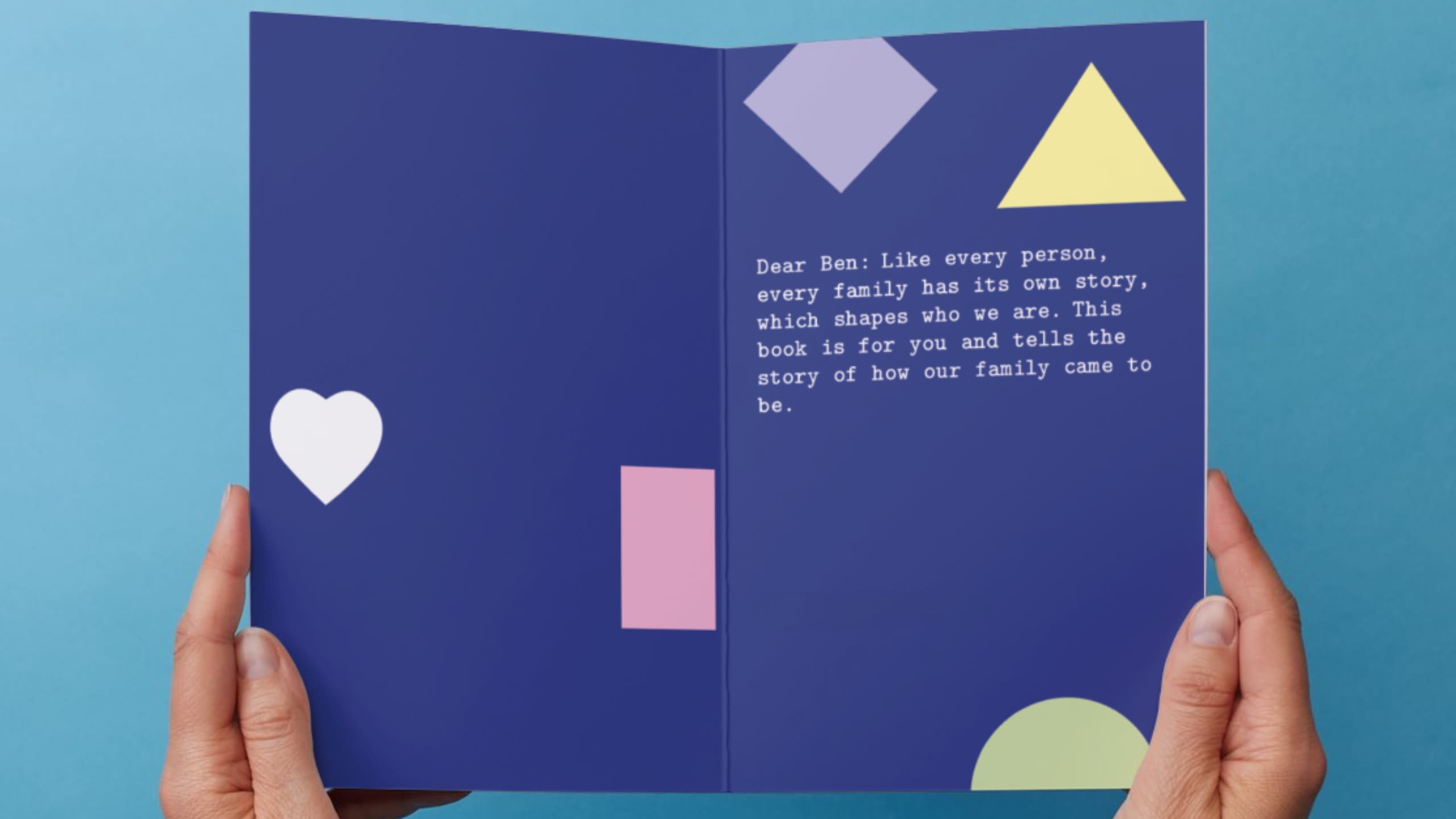
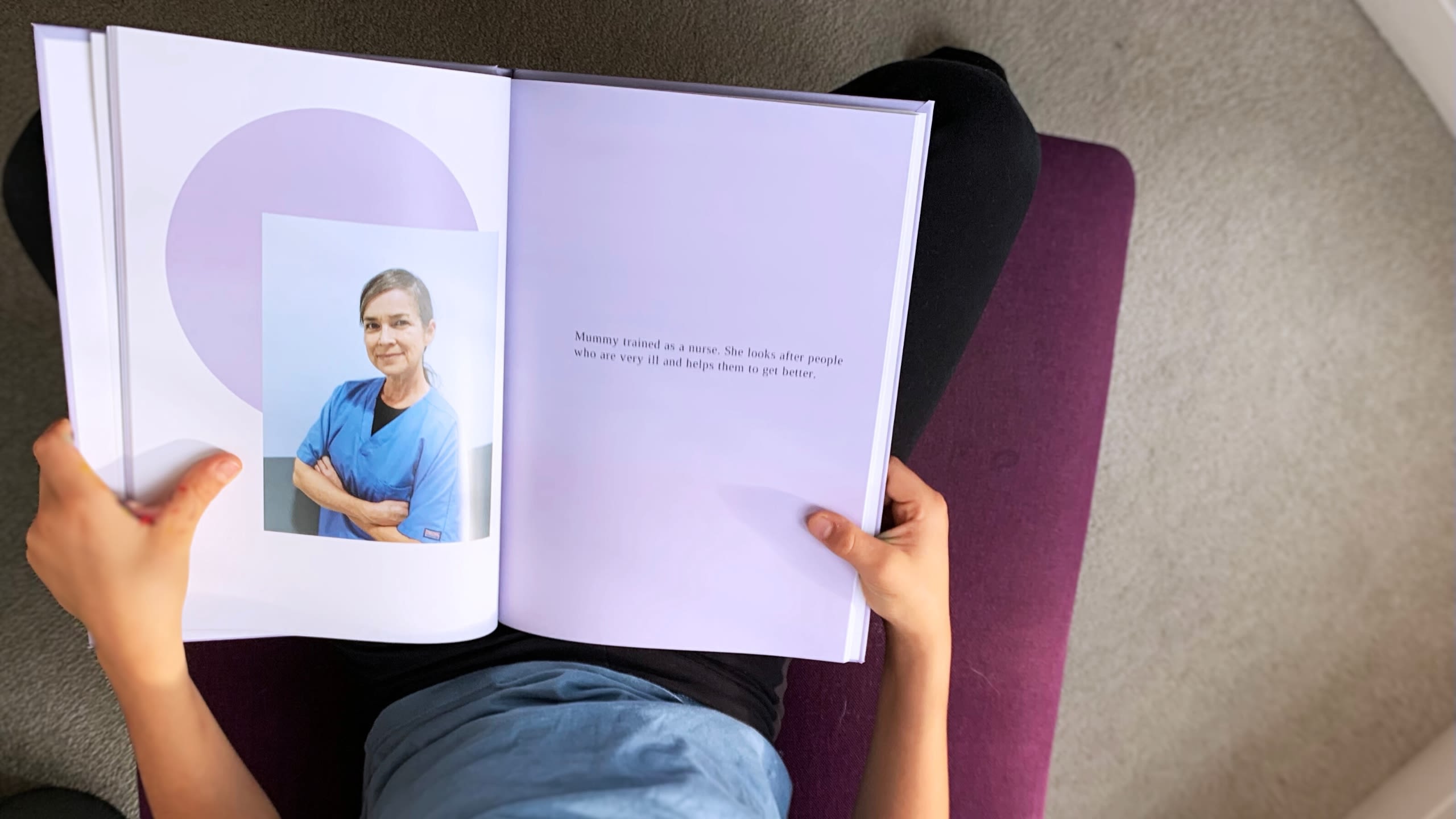
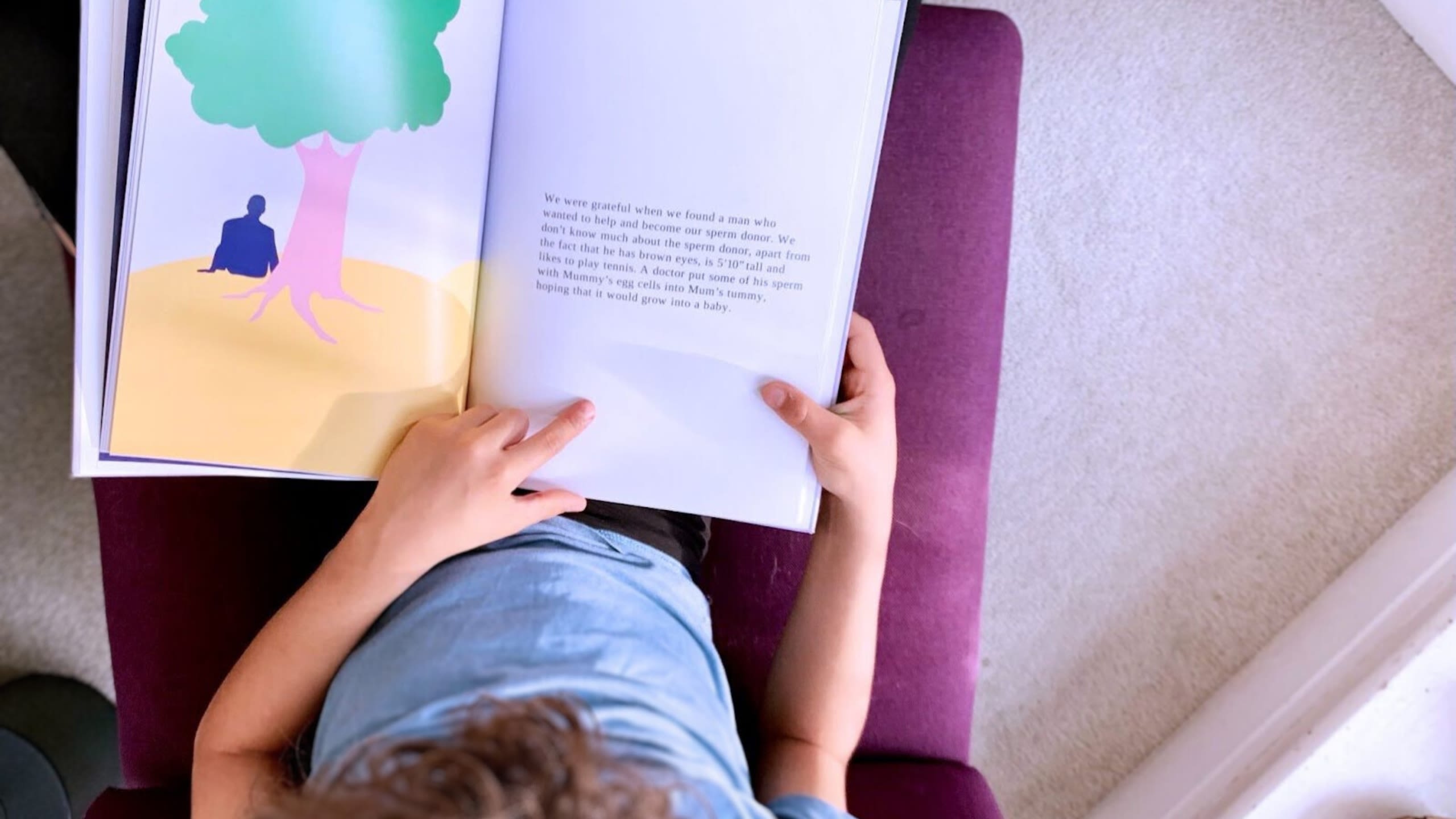
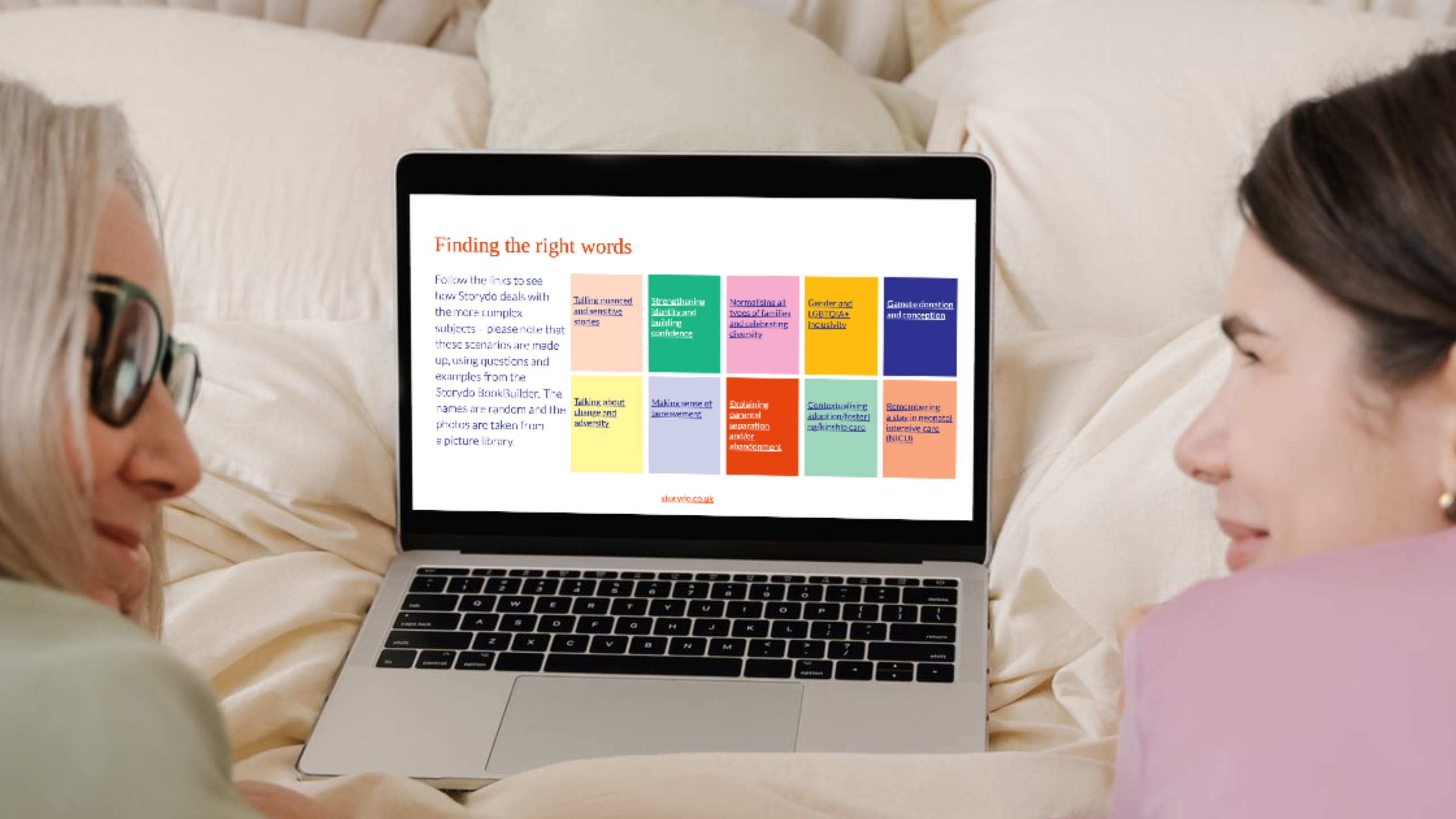
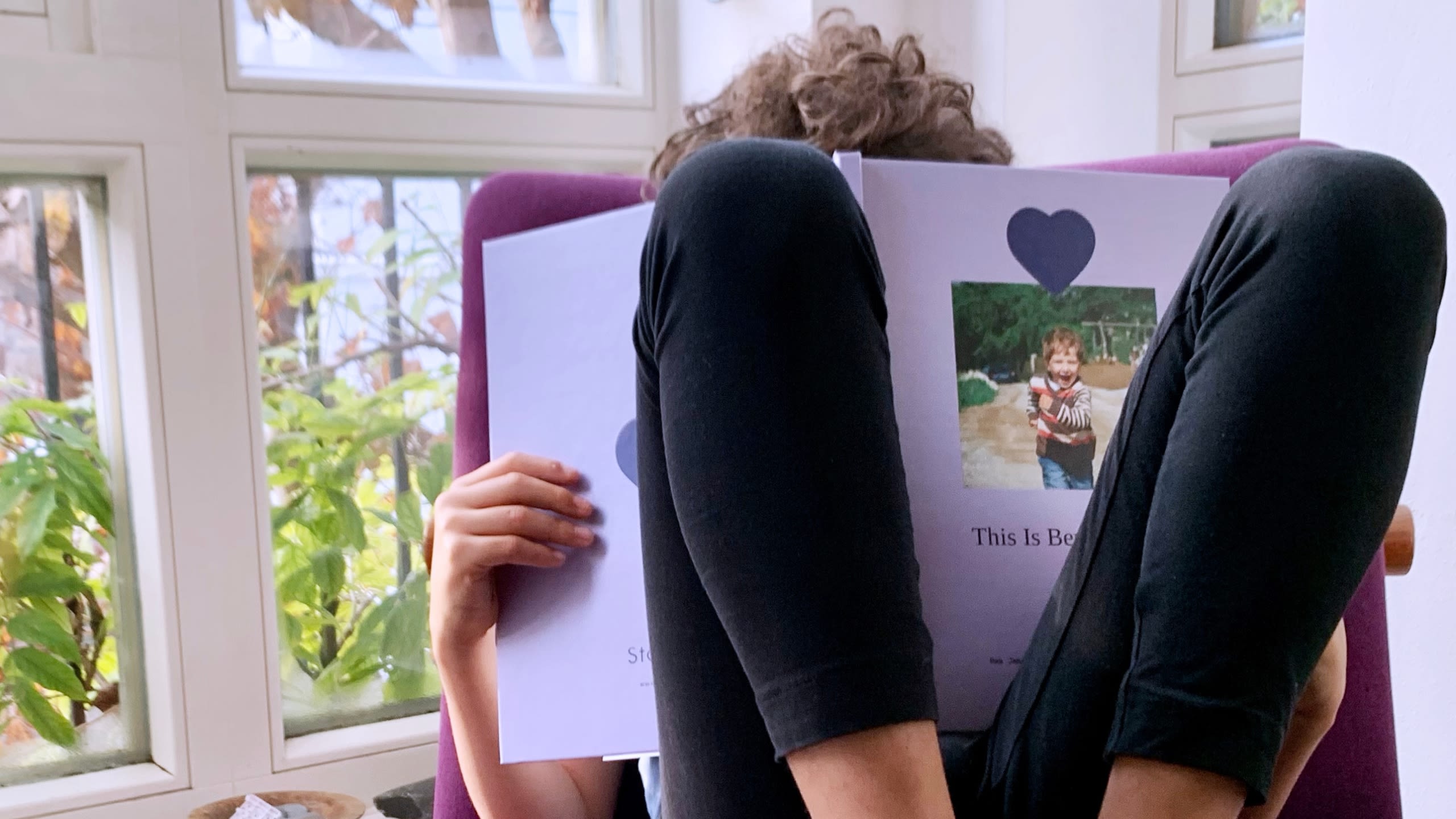
In mainstream books, films, and ads there is a very dominant narrative of how families happen: Usually, a man and a woman fall in love, have children and live happily after. From a young age, that’s how we learn how families are formed, so it’s no surprise that most hetero people expect this for themselves, too.
Yet there is a growing number for whom this narrative does not reflect their family nor their path to building it. They may have utilized fertility treatment, adoption, donor assisted reproduction, or surrogacy. They may be an LGBTQ or solo parent.
Many of the parents-to-be who choose donor conception worry about how this will impact them and their children, from concerns that the child may not bond as well with the non-genetic parent(s), or that they will feel different growing up in a family that might not look similar to the ones they frequently see in books.
On social media forums, many voice anxiety about how to tell their child about their origin, fearing it will cause a rift in their relationship. During the development of Storydo, I have closely worked with dozens of families through donor conception and have seen how donor conception can be integrated into the family narrative in a way that telling a child can become a bonding, trust-building experience.
Family storytelling can also help to normalize diverse families. When children start formal schooling around four or five, they become aware of norms and differences. This is often the age where they start asking why their family is different, for example, why they have two daddies, or one mummy, instead of the “mummy-daddy” setup they seem to see everywhere.
The Power of Family Storytelling
Our brains are hard-wired for storytelling. This is how we make sense of the world, our feelings, and what’s happening around us. This is also how we learn and find our identity and sense of self.
Family storytelling is particularly powerful because it enables us to create a positive narrative around our origins and who we are.
And there is a growing body of research that backs this up: studies have shown that family storytelling creates stronger family bonds, makes family members more resilient, as well as supports children’s emotional and cognitive development. It also helps children make sense of their story, feel proud of their family, strengthens and reassures them, which gives them confidence and a strong sense of self.
How Family Storytelling Helps to Normalize All Families
Family storytelling is a great way of celebrating differences, whether that’s talking about how Papa and Daddy met and fell in love and how they wanted a child, or how grateful they are to be part of such a fantastic family. Pointing out that families come in all shapes and sizes helps, as well as talking about family traditions, celebrations and adventures, gives children the feeling that they are part of a strong and loving union.
Storytelling and Donor Conception
It’s obvious and remarkable at the same time, but if you ask a parent through donor conception if they would rather have a genetic child than their actual, real (donor-conceived) child, they emphatically say no. They have bonded with their child and can’t imagine having any other child in their place. Many will say that the donor-conceived child is exactly the child they were meant to have, which is all part of their individual family narrative that includes overcoming adversity.
The more family storytelling that a family practices, the easier it will be to tell a child about their donor conception as well. It’s never too late to tell, but the younger they are, the more likely it is that they will see it as a normal fact about them.
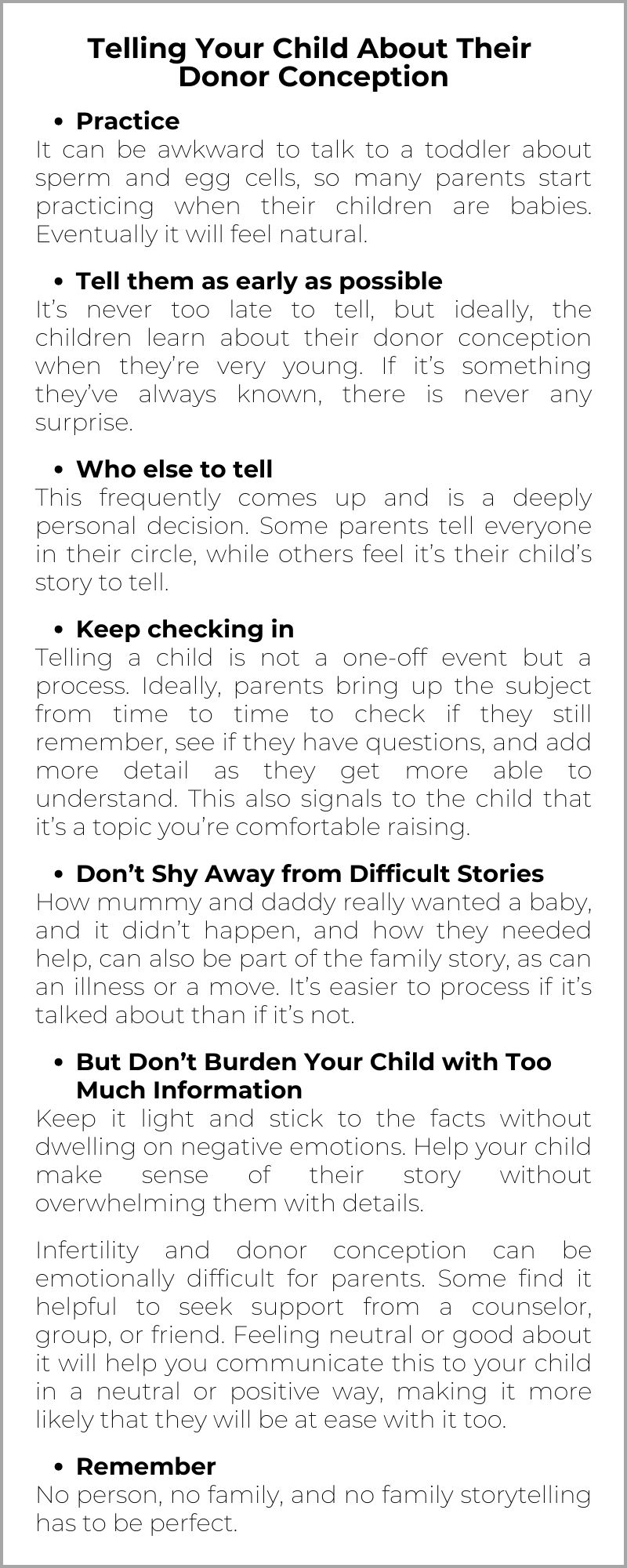
About Storydo
My business partner’s and my path to family building has been everything but straight-forward. In this, we found storytelling so powerful that we wanted to help every parent celebrate their family, which is why we created the Storydo BookBuilder to enable every family to create a bespoke book that celebrates their unique family story. Parents only have to answer questions and upload photos, and the Storydo BookBuilder will create layouts and literally write the text for them, which they can easily edit.
We knew that our platform had to be user-friendly as well as inclusive. So we created something that really is for all families, no matter how they came to be or who they are.
We also designed our books to not just normalize, but celebrate all types of families.
We also wanted to make telling a child about their donor conception a good experience. We found that most books on donor conception deal with this issue only, which can make it feel a bit artificial. So, we worked with experts, donor-conceived people, and psychologists to develop wordings and ways to integrate this part of a child’s story into the whole family narrative.
With Storydo, parents can tell the whole family story—from grandparents to a bit about the parents as children, their studies, hobbies, or work, how they met (if relevant), the wish for a child, conception, pregnancy, birth, milestones, and more.
Telling the whole family story roots the child in the family, making donor conception just one of many facts that makes them who they are. The younger the child is when they read the book and start understanding their family story, the more normal the donor conception part will feel to them.
Parents can also use the book to talk to their children about other complex topics, such as bereavement, separation, additional needs, or a parent transitioning. We find that embedding these topics into the context of a loving family life makes them easier to process, and assures children, helping them to accept these as part of the story that makes them unique.
Our book is for all families. Parents - no matter what their path to parenthood was - love doing our books, as it shows children where they come from and lays the foundation for more family storytelling. They tell us how their children want to read the book over and over again, and how each time they look at the book with their child is an excellent opportunity to expand on stories about aunts, uncles, holidays, pets, and more. This develops their identity and gives them strong sense of self and family.
As one of the founders of Storydo, Sonja has spent years researching and writing about family storytelling and how to harness this powerful tool to celebrate every family, no matter how they came to be.
“Being part of a blended family, I know the true value and importance of sharing your family’s story with your child and so we wanted to create something that allowed every family to do just that.
We wanted to enable parents to create their own narrative that celebrates their family, while strengthening their child’s identity and sense of self. ”
Sonja Klug, co-founder, Storydo
and mum of two
